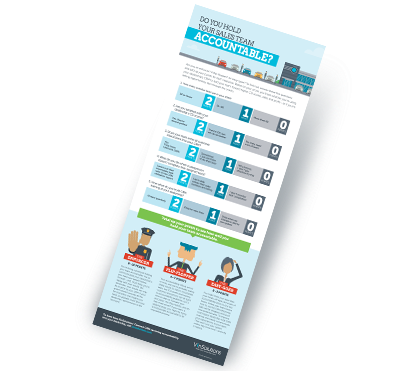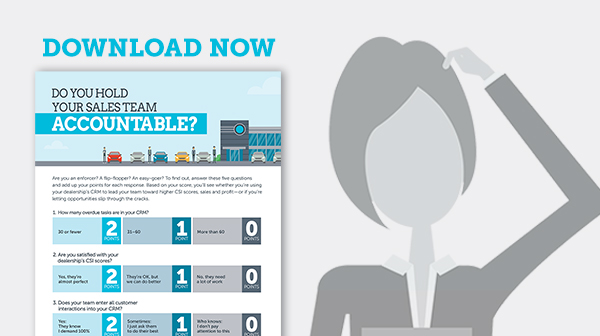Ahhhh. Leadership. Accountability. Both are concepts we are all too familiar with. Can you have one without the other? I don’t think so. Leadership is many things, and many books have been written on the topic, but I’m going to ask you to zero in on one aspect: accountability.
All of us charged with running a company, department or team are likely well suited to do just that. We have ample experience and knowledge to legitimize our roles as leaders. We’re inherently skilled at some version of telling people what to do. We’ve got all this great experience and knowledge, after all, and of course we know exactly what needs to happen to find success.
However, we can fail miserably, and our team’s mission can fail miserably, if we ignore the importance of accountability. What IS “accountability”? Said simply, accountability is insuring your brilliant guidance and instruction is being carried out by your team.
To illustrate why accountability is so critical to good leadership, think about it in terms of parenting. (Many of us are guilty of monitoring our children at home more stringently than we do our team members at work.) If you ask your child to clean their room, and a few hours later they haven’t cleaned their room, and you do nothing about it, what has your child just learned? You’ve basically trained your child that when mom/dad says to clean their room, it’s an optional event. I don’t know about you, but things like that aren’t optional around my house.
It works the same way in a dealership. Giving your employees tasks without holding them accountable is teaching them that your directives are optional. That’s not a sustainable way to lead a business or an employee’s professional development.
Here’s the interesting part: People WANT to be held accountable. They don’t think they do, but they really do. Have you ever had a real task-master for a boss? When you’re in the moment, this task-master may not be your favorite guy. Your interactions are probably frequently awkward and uncomfortable. But at the end of the day, what do we say about him? Probably something along of the lines of, “That guy was a straight shooter. I always knew where I stood with him.” As long as expectations are clear, employees are generally okay with being held accountable to what’s being asked of them.
Here at VinSolutions, I live in a CRM world, and accountability is a huge part of this world. At its simplest description, a CRM is a data warehouse and process engine. What is “process” without accountability? Any process requires absolute adherence to have any chance of being successful. Who would disagree with that? I mean, I don’t want Five Car Fred deciding exactly which steps are REALLY important to follow. Do you?
Yet, we see rampant failure to follow process every single day in our CRM. I must say, it’s frustrating and it’s what keeps me awake at night. If you decide your process is what gives you the best opportunity to set an appointment or to earn a showroom visit, why in the world would you allow anyone to derail or adlib that process? And yet, dealerships allow their process to be violated every single day. And when we allow that, we invite total chaos into the process of doing a pretty simple thing.
Think of this in terms of a test drive, which is ultimately just a process. We take people who express an interest in buying a car on a test drive. Why? Because we know that if someone is going to buy the car, they have to drive the car. Is that debatable? I don’t think it is. And if you told a regular sales associate that test drives were optional, they’d likely look at you like you had three heads.
For your processes to work, every step has to be treated as nonnegotiable as a test drive. Just because other processes in your dealership may not be as intuitive, that doesn’t mean they can be up for debate or interpretation.
None of this is terribly hard to correct. Many dealers find that a helpful first step in establishing accountability is creating and reviewing activity reports from the CRM, and then setting up one-on-one meetings to talk through any issues uncovered. After a couple of those meetings, underlying issues that need additional attention, such as software retraining or process restructure, reveal themselves. And once your staff is used to being held accountable, you may even find that they come to you with the roadblocks keeping them from doing their best work earlier and more frequently.
If you believe in your processes, then ensure they’re being followed. Hold people accountable. Not so deep down, they expect you to and they’re disappointed if you don’t – at least, if you’ve done at adequate job explaining how they benefit. Lead through accountability.
A version of this post originally appeared in AutoSuccess.
Do you hold your sales team accountable? Find out with our assessment.
Start the Assessment


